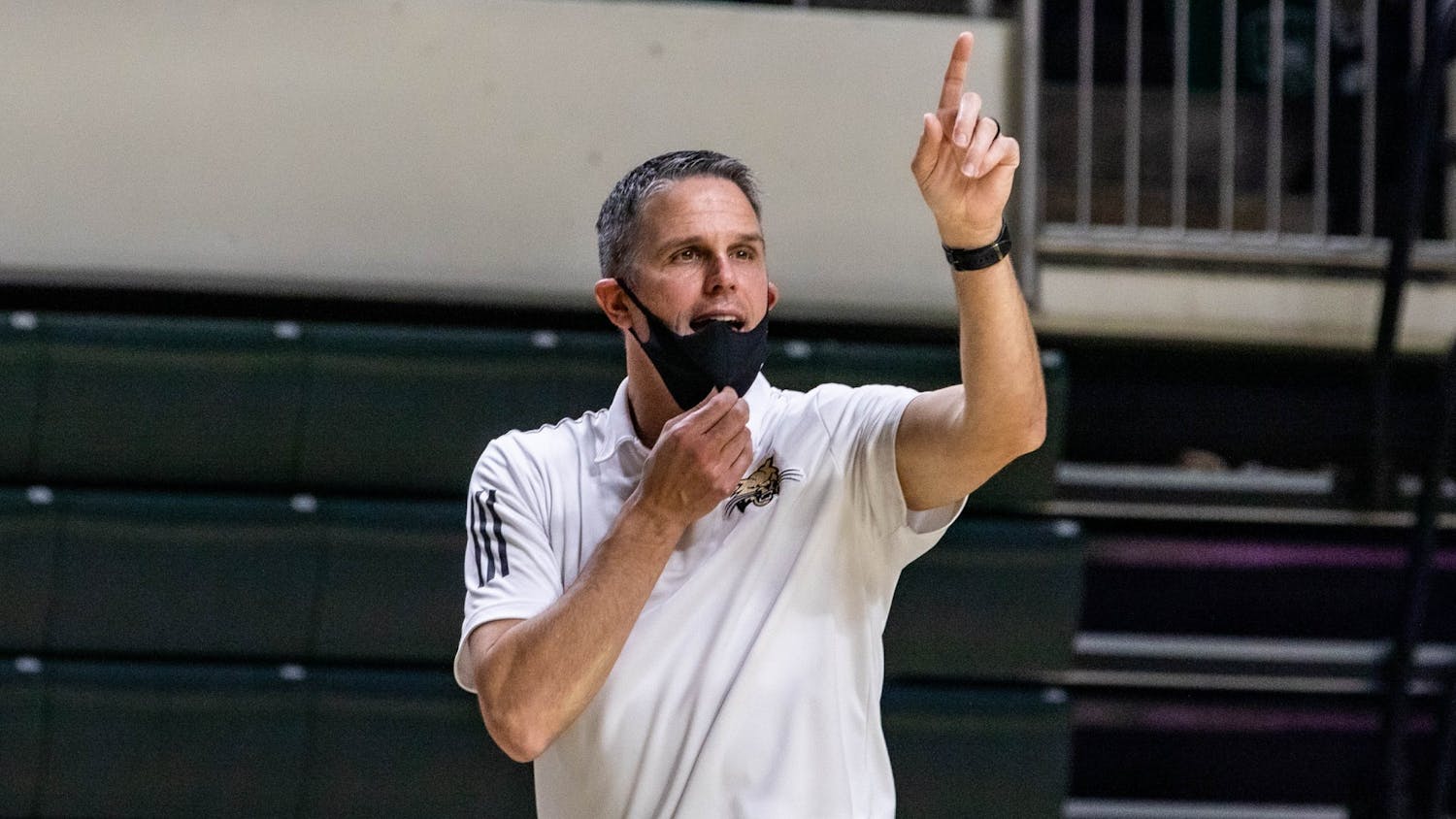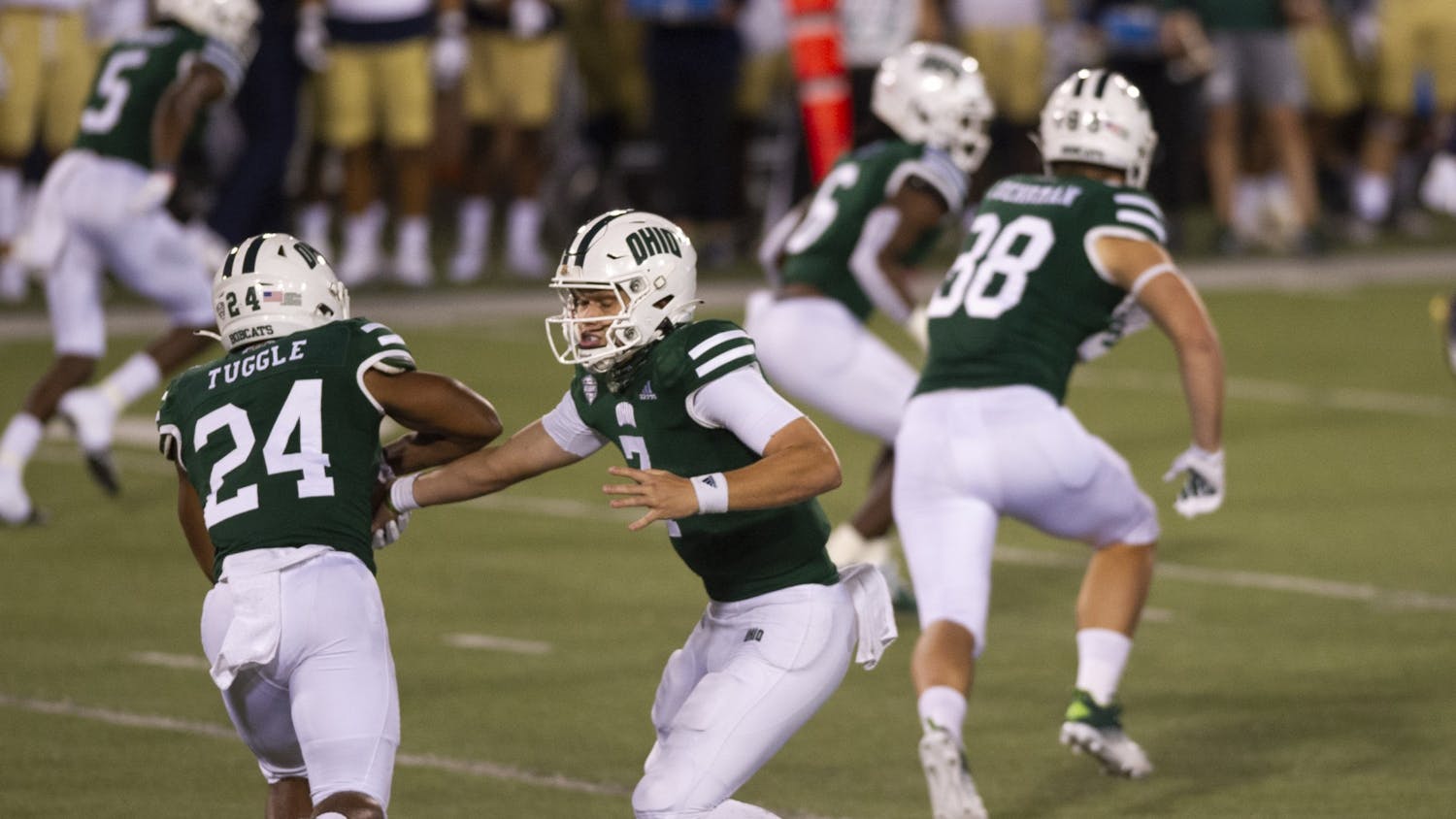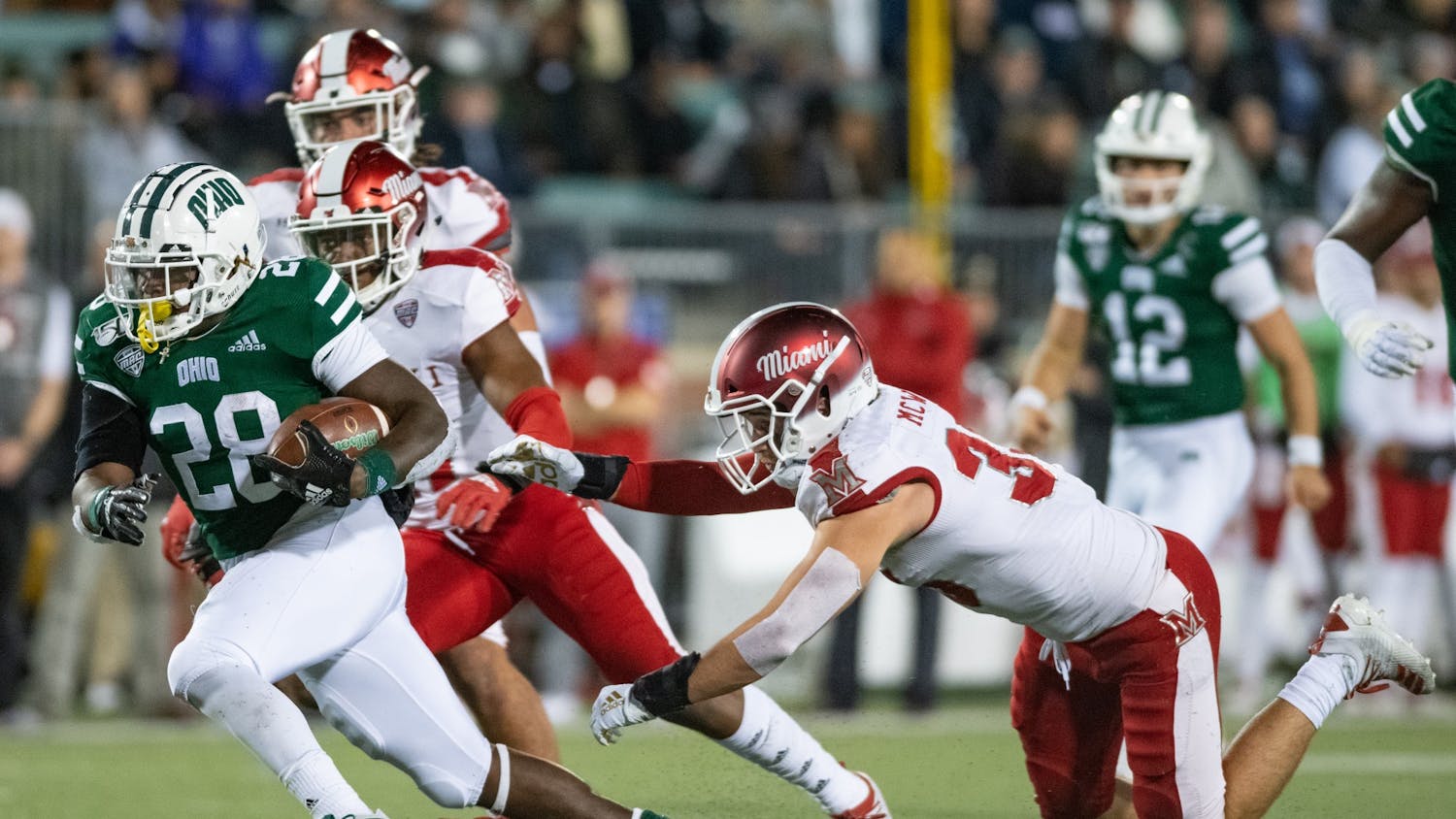In the span of two weeks between late January and early February, three Ohio runners broke four program records that had stood for years. On Jan. 29, Josh Park shattered the program record for the indoor 5000-meter event by 10 seconds. He'd break another record two weeks later after running the indoor 3000-meter event in 8:11.35.
Park wasn't alone, however. In the time between his two record-setting runs, Tony Tonkovich and Wendesen King set program records of their own. King broke the 19-year-old indoor 800-meter record when he finished the event in 1:53.33, and Tonkovich broke a program record for the indoor mile that had stood for 42 years.
The trio's record-shattering performances are a part of what has been one of the greatest turnarounds for Ohio's men's track and field in recent memory. It's a drastic change from where Ohio's runners have been over the past 15 years. In fact, for the past decade and a half, Ohio's few men's track and field athletes haven't had a proper team to call their own.
In 2007, Ohio announced it was dissolving the men's track and field team, among several other teams. Factors including meeting Title IX standards, lack of competitive success and funding were among the primary reasons given. While men's track and field had been the victim of other cuts leading up to the decision, including scaling back the number of scholarships provided, the discontinuation of the team sent shockwaves felt by those closest to the program.
Former players, coaches and alumni were outraged. Former Ohio coach Stan Huntsman, who also coached the American men's track team at the 1988 Summer Olympics, even sent back his master's degree to the university in protest. Despite outrage, the decision stood.
Since that decision, Ohio has had to improvise. It organized an unofficial men's team, with cross country runners participating in select track events. The runners can attend five meets per season and set program records, but they are not allowed to compete in the MAC Championships. Success was hard to find without an official team or runners with proper track and field experience.
By 2021, the Bobcats hit rock bottom. The men weren't able to compete in track and field meets due to the COVID-19 pandemic. They had to sit on the sidelines as they watched their female counterparts break personal records, compete against other schools and participate in the MAC Championships.
Despite the obstacles, there was sporadic success. Several cross country runners, Park included, realized their skills translated well to long distance track events. In his sophomore season, Park garnered All-Mid-American Conference First Team recognition in cross country. Park went on to win two more MAC Championships in cross country and also excelled in the track events he participated in.
Despite Park's solo achievements, the Bobcats didn't have much success as a makeshift team. Park felt the Bobcats had little motivation since they weren't eligible for the MAC Championships.
"As long as I can remember for the first four years on the team, the attitude was complacency," Park said.
But there was a light at the end of the long tunnel for the Bobcats. On July 28, 2021, Ohio announced Sarah Pease had been hired as the coach of both the track and field and cross country programs.
The turnaround began immediately.
"I think the biggest thing with coach Pease coming is that for the first time in probably 20 years someone has advocated for us," Park said. "From our perspective, we've been on the bottom of the totem pole as far as the athletic department is concerned and as far as the university is concerned. We've kind of had to fight a lot of challenges alone, and we were very excited to get Coach Pease on board because she's advocated for us to compete at higher level meets. She's advocating for us to have more resources."
Pease quickly realized the potential many of the Bobcats held. Although a transition to shorter distance events might be difficult for some cross country runners, the coach helped them adapt, and her enthusiasm spread like wildfire.
Pease's guidance yielded unprecedented results this season. Park, King and Tonkovich have shattered records that have stood for years, and the trio did it all in just a two-week span.
"Some of these records are 40 years old, somewhere around there, which I think says a lot about what we have been able to accomplish," Park said. "But at the same time, it reveals some underlying issues that we have historically had in the past. It's kind of cool to overcome that and set framework for Bobcats in the future."
The trio may be shattering records, but it comes at a cost. Runners for Ohio's unofficial men's team can only compete in five meets in association with the program per season. If any of the Bobcats want to attend other meets, they must participate as an unattached athlete. According to the NCAA, unattached athletes are given no financial support from their university. That means the unattached athlete must pay for meals, transportation and all other related expenses out of their own pocket.
While the unattached athlete rules allows the Bobcats to circumvent their five-meet limit per season, it also means they are paying out of pocket in order to get enough experience to break program records in the first place.
"What we get right now with our mixed cross country team is that we can travel them and pay for their travel as if they were a team for five meets out of the indoor (and) outdoor season," Pease said. "And so what they've done a really good job of is they've competed unattached. So, a lot of meets, you can enter as an unattached athlete, and they've paid their own way and done that."
It's a toll the Bobcats are willing to pay, and they've improved as a team because of that. But there is still a limit as to what the Bobcats can achieve. The MAC Indoor Championships passed in late February, and Ohio's men's team wasn't present. The Bobcats stayed home and wondered what might have happened had they'd been able to compete.
"For us, there's not really anything else to look forward to other than our times since there's no competing in meets that actually matter like MAC Championships," Tonkovich said.
Although the MAC Indoor Championships felt like a missed opportunity, Park and his teammates have a long-term goal in mind. Their ultimate goal — whether it comes sooner or later — is the reinstatement of the men's track and field program. Park believes the university could still meet Title IX requirements if the men's team was brought back.
"It was kind of a controversial decision to eliminate our program back in 2007 to begin with, but there wasn't much financial incentive for us to get cut," Park said, "The university didn't save any money, and there would be no Title IX implications if we were actually allowed to race track. So, what we can do is try to do the best we can to prove to the athletic department and the university that it would be financially viable to have us as an official sport."
The Bobcats might be entering a state of consistent competitive success. The roster is young, and many are willing to run in track events to prove their skill. Pease's hiring only added to their confidence. The first-year coach has brought about a shift in culture, and the record-setting runs from this season prove that.
Park and the Bobcats hope this recent streak can sway opinions in their favor. The chances are slim, but change might be brought about if the success can be sustained. If it is, the Bobcats may no longer be confined to just breaking records.






